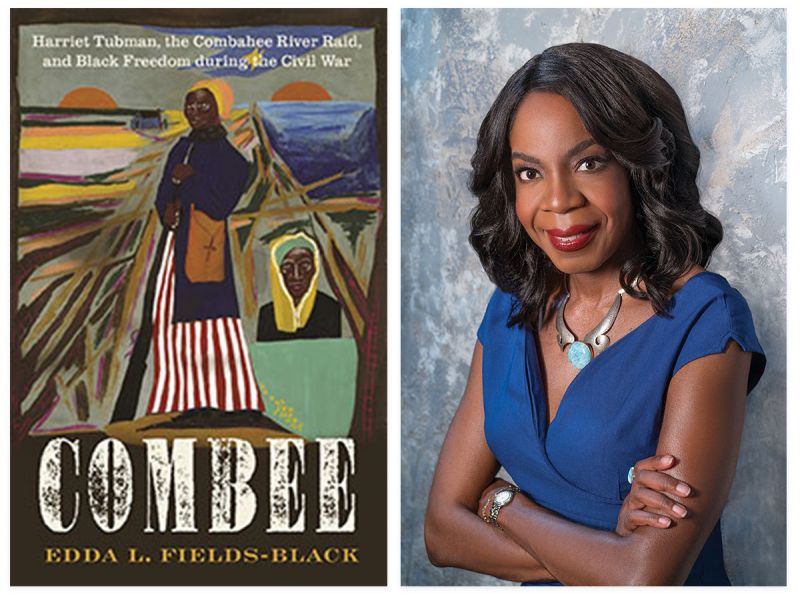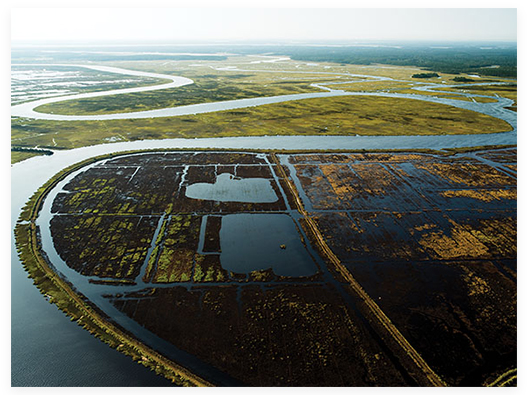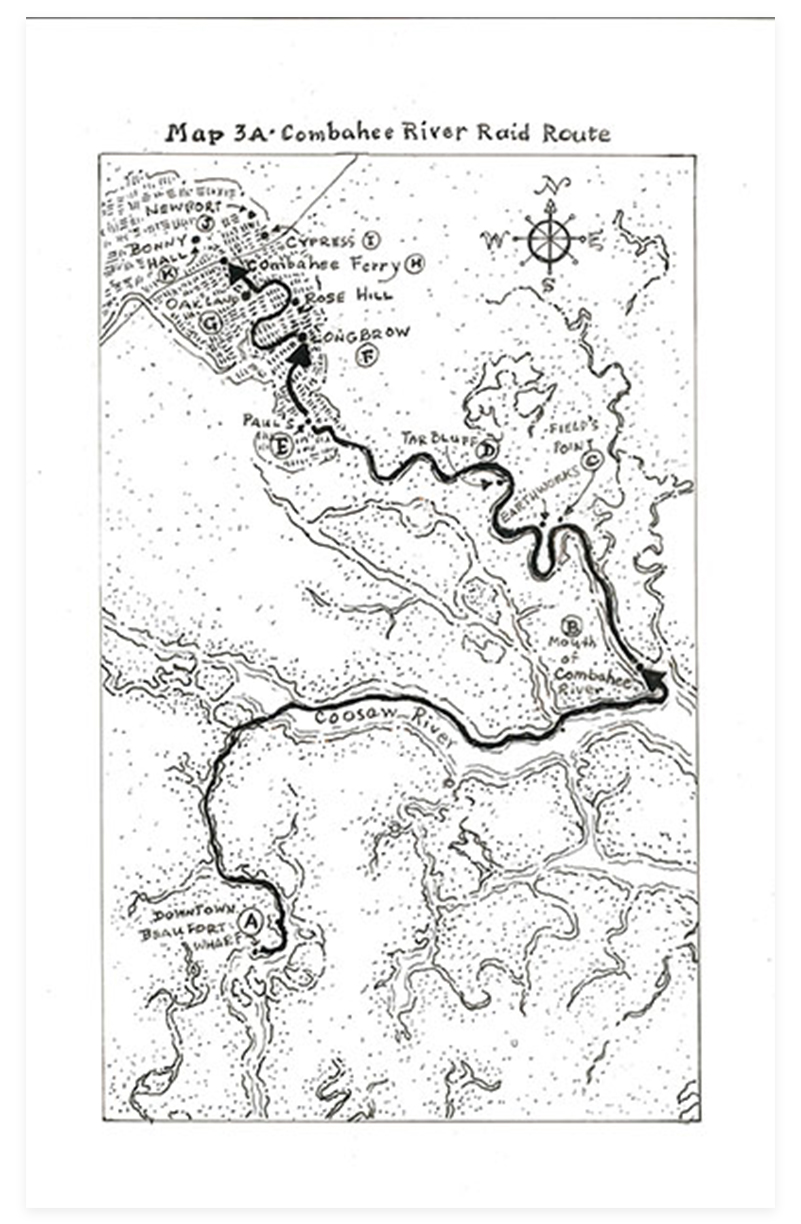Fields-Black and photographer J. Henry Fair are collaborating on an immersive exhibit for the Gibbes Museum of Art in May 2025

Edda Fields-Black (right) is collaborating with photographer J. Henry Fair on a multimedia exhibit depicting the Combahee River Raid, set to debut at the Gibbes Museum next spring.
Edda Fields-Black may well be the Harriet Tubman of our day—a rescuer, delivering those historically unnamed and unheralded to a new freedom of sorts, recovering lives on the page. That, in part, is what the Carnegie Mellon University associate professor of history accomplishes in her new book, Combee (Oxford University Press, February 2024), a riveting account of one of the greatest slave rebellions in the New World, the Combahee River Raid, in which Tubman helped liberate more than 700 enslaved people from seven plantations in June 1863.
A full moon, a secret attack, Union gunboats, spies, desperate lives at risk—it’s a made-for-motion-picture drama, an epic story, and thoroughly researched academic work. Part genealogy, part history, part high-stakes adventure, Combee is a project that only someone like Fields-Black, who previously brought her scholarly expertise to the stage as executive producer and librettist for the groundbreaking symphonic work Unburied, Unmourned, Unmarked: A Requiem for Rice, could pull off.
“The world turned upside down on June 2, 1863, and the Combahee River Raid teaches us much more about the intimate lives, loves, families, and labors of enslaved and formerly enslaved people, finally from their own words, than we ever knew before,” writes Fields-Black, whose great-great-great uncle fought in the raid. The 528-page whopper (not including 200 pages of endnotes) also fills in critical gaps in Tubman’s biography, as little had been written about her Civil War service as a spy, scout, and raid leader. Fields-Black, however, never intended to write a book about Tubman or the Civil War. “Rice is my field of study,” she says. “I’m motivated by rice, but the Combahee raid involved rice plantations, and the people involved were all being bought and sold by rice plantation owners. I realized this was the ultimate rice story.”

It was also a compelling personal story, spurred by a visit to her family cemetery in nearby Green Pond only to discover unmarked and desecrated graves. “I was in a state after that visit,” shares Fields-Black. “I knew that life as I knew it had changed. I felt like I was living on my ancestors’ backs.” She needed to know their names, their stories.
With initial help from the International African American Museum’s Center for Family History, she began research that ultimately led her to the pension files for the enslaved men who escaped in the raid and joined the US Colored Troops. These files included testimony from their relatives and community members—a mother lode of formerly unmined information. “Puzzle pieces,” Fields-Black calls the documents, which she transcribed and cataloged, hoping that names, places, and family lineages might jigsaw together, as they did for her when Jonas Fields’s 255-page file ultimately led to her great-great-great grandfather Hector Fields. “It’s a story about naming…uncovering the identities of people who were heretofore not identified,” she writes.

On the night of June 2, 1863, three small Union ships, carrying Tubman and 150 Black soldiers, started from Beaufort toward the circuitous lower Combahee River.
Thanks to Fields-Black, never again will readers drive down Highway 17, through the ACE Basin, and over the Combahee River, without bowing in awe and respect at the Harriet Tubman Bridge. Our community will learn more about this gripping episode in our history when Fields-Black and photographer J. Henry Fair collaborate on a Gibbes Museum of Art multimedia exhibition planned for Spoleto 2025. Until then, start digging into this fascinating read now.
Meet the Author: On May 8, attend a discussion of Combee with Edda Fields-Black and Coastal Conservation League founder Dana Beach. Charleston Library Society, 164 King St. Wednesday, 6 p.m. $55. charlestonlibrarysociety.org